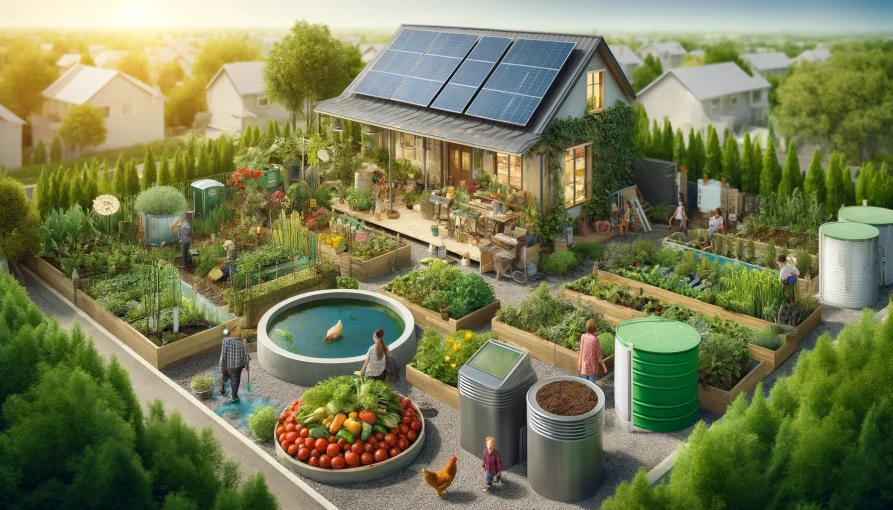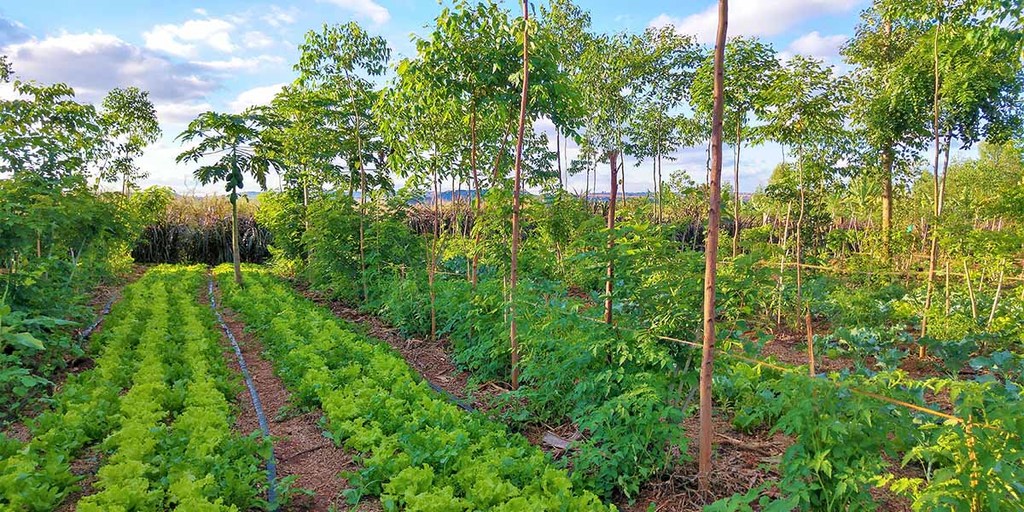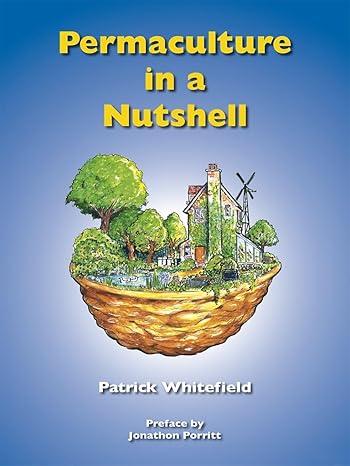Re-connecting with Nature Through Permaculture
What is Permaculture?
Do you want to re-connect with nature?
Do you want to start growing your own food?
Understanding Nature's Principles
Permaculture is an ancient practice of farming and many people were using the principles of permaculture up until a few hundred years ago but it really has been making a great come back. It’s really about understanding how nature works, following her principles and mimicking her. The 3 ethics involved with permaculture is Earth care, people care and fair share. It’s a regenerative system that can work anywhere – your garden, allotments, farms and off-grid community living. As you can tell I love looking at the words we speak. Permaculture comes from the term ‘Permanent’ and ‘Agriculture,’ which was coined by two Australians named Bill Mollison and David Holmgren who coined the word. We really want to work in harmony with nature, being self-sufficient but causing the least damage to our environment. Obviously commercial agriculture has been damaging in every way imaginable which has depleted a lot of the soil, killing the life of the soil with rough tilling and especially with added synthetic fertilisers being used. We want to build healthy cultures, ecosystems and use all the principles of permaculture within our environment.
Honoring Nature's Legacy
With Earth Care, sadly a lot of people in society in general have lost their connection with nature and the Earth having more interest in the latest technology. Society in general does not respect nature, are destroying the Earth, calling it progress and they are not living in alignment of natural law principles. This magnificent, living, breathing being we call mother nature brings life and children into this world and we should be honouring her as our ancestors did. Our ancestors had a connection to nature and where their food came from knowing everything was already organic. In fact, they never called it organic. It was just food that was already clean. One day, I want to produce and provide nutritious dense food for a community of my own with clean food and it’s even possible to do this with just using a small area of land.


Revitalizing Soil Health
We need to not only use permaculture practices but regenerative practices to bring the life back into the soil. It makes sense to have good compost to create healthy soil, organic heirloom seeds that would produce healthy plants, healthy food, healthy people, and learning all the cycles that nature has when growing food. The good news is, with the use of regenerative permaculture practices we can repair the damage done to the soil if we work with nature using the right tools. The beauty of nature is that she is self-healing and always seeking a balance. As a society, we must start reconnecting back to nature consciously because she already has a healthy ecosystem that does not need to be altered. If we look at forests we can clearly see her operating system working wonders and it does not need to be touched by man. She has already the perfect system and we must learn from her.
Balancing People Care Ethics
Understanding the ethics of people care, many people in society have either a left-brain imbalance or a right brain imbalance. Sometimes people can have both brain hemisphere imbalances, they are so disconnected and seem to have lost the generative principle which is care and love for nature. This sounds very harsh, however, it is true and not raising this issue will keep it in the darkness. They are not understanding the divine feminine aspect within them which is the spiritual and nurture aspect of the right brain hemisphere. The world suffers because of this and sadly society are painfully ignorant. We need a balance of the left and right brain by taking action and having a passion to grow our own food which will balance the brain as one. We must act as if we are rebuilding instead of destroying. We all have a right to live, have clean food and water, and it is our reasonability to take care of the environment. We have to do it ourselves, working together and no-one should go without.
Embracing Fair Share Ethics
This leads me nicely to the third ethic which is fair share as there are still so many that go without and so much is wasted. It’s a sad state of affairs and people buy a lot of what they don’t need and it just goes to waste. When we return to nature and start to reconnect with her, you immediately start balancing out mentally, emotionally, physically, and spiritually. We start to holistically heal and the compassion comes back so we treat each other better, and start looking after one another like the ancients did when they were living off the land. We start to really co-exist together and we make sure everybody has what they need, working on the land, having that connection, with communities and surviving together. This is the most natural way of living making sure we all have what we need by sharing food, sharing knowledge and sharing life.
Implementing Permaculture Principles
Once we have got these 3 ethics in place, we can use permaculture in all it’s 12 principles. I will mention a few principles here, however, I will leave the relevant links for you to research further. The first principle of permaculture is ‘Observe’ and ‘Interact.’ Being totally aware of your surroundings, observing how everything is growing, adapting to any situation that occurs, such as adverse weather and making sure everything is in place. This will allow you to move forward in a more ethical and sustainable way of life. Once everything is set up and you have what you need, the system you build will run itself. Nature will then play out her natural cycles which really is just recycling, like growing your food, from seed to harvesting, and saving those seeds. It really is something special and the whole idea is to mimic nature.
The Principle of Yield
The 3rd principle is ‘Obtaining a Yield’ which is the whole point but by taking care of the soil food web we can then really harvest nutrient dense food in even such a small area, once we create the right environment for the plants. Obtaining a yield is not just for food. You can expand on obtaining many things when it comes to permaculture. You can think of collecting animal faeces for making compost, growing medicinal herbs for ailments and even building materials. You can even think about designing a building to capture an abundance of rainwater. Not only that, buildings can be constructed in a way to yield wind protection, reflect heat or light for tender plants. It is actually quite endless when we think and ponder on what else we can obtain a yield from. We’re really thinking about the bigger picture and not trying to waste anything we can get a yield from. If we build communities, we can also yield friendships.
Valuing Renewable Resources
The 5th principle is ‘Using and Valuing Renewable Resources.’ The first obvious one is using the power of the sun and generating your own power by having solar panels. The point is to reduce the unnecessary waste that humans create that causes pollution. There are other ways to create power, such as, whirlpool turbines that can provide 24/7 renewable energy for dozens of homes. There is a Belgium company that offers this service and can be installed at most rivers and canals as long as the water is flowing, you can have constant energy. As a side note, it also doesn’t harm the fish in the water.

Please clink on the relevant links for further research and if you would like to pay for a service to help you to grow food then please contact About John – Sow & Grow Regenerative (sowgrowregen.co.uk) for a consultation.


